Order of the Brilliant Star of Zanzibar, Type IV, I Class Breast Star
SKU: 01.ZNZ.0103.402.01
Estimated market value:
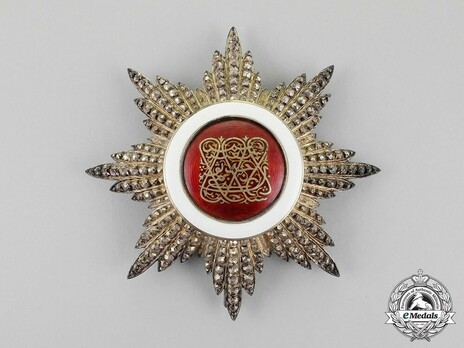
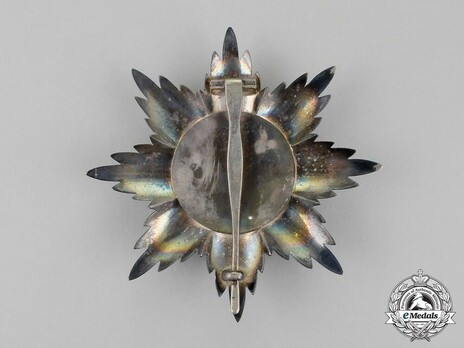
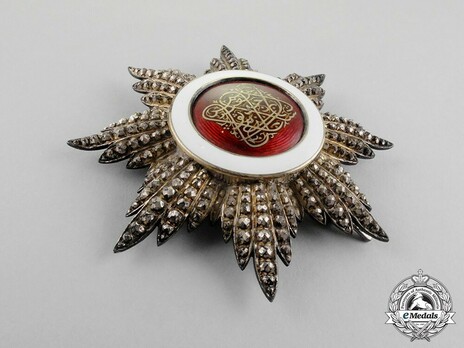
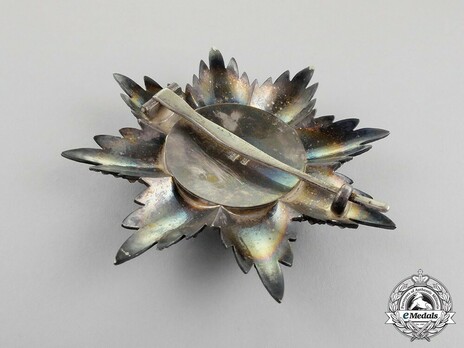
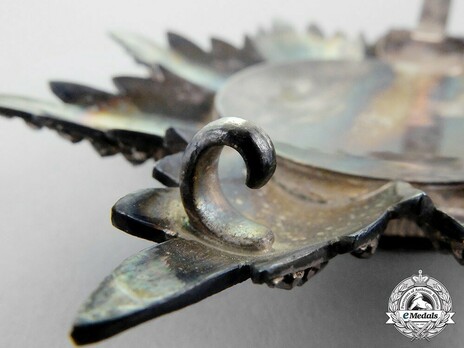
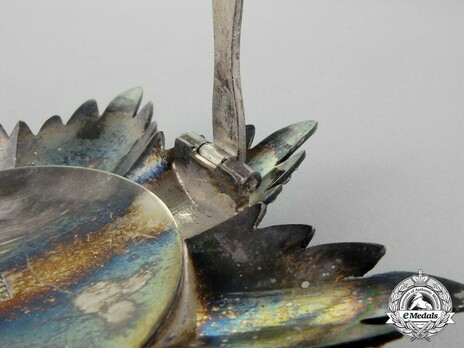
Estimated market value:
Attributes
History
The Order of the Brilliant Star of Zanzibar was instituted on August 22, 1865 by Sultan Sayyid Majid bin Said Al-Busaid. It was modified and extended by Sayyid Barghash bin Sa‘id ten years later and again amended by Sayyid Khalifa II bin Harub on August 5, 1918. Subsequently, it became an award in five classes for meritorious service: First Class (limited to 40 recipients), Second Class (60 recipients), Third Class (80 recipients), Fourth Class (90 recipients), and Fifth Class (100 recipients). Ladies were admitted to the order in 1956.
The original name of the Order is "Wisam al-Kawkab al-Durri al-Zanzibari".
The Order was awarded for meritorious services. After the creation of the Order of Independence in 1963, the Brilliant Star was reserved for persons rendering extraordinary service to the Sultan, his heirs and successors and other members of the Royal family.
It was a state order from its inception in 1865 until the overthrow of the Sultanate on 12 January 1964. It is currently is a House Order of the Zanzibar Royal Family. The Grand Master is His Majesty Sayyid Jamshid bin Abdullah Al Said, Titular Sultan of Zanzibar. Initially, the decoration had two grades, the first grade was awarded to foreign heads of states and the second was subdivided into five hierarchical classes. Currently, only the second grade is being awarded.
The Order of the Brilliant Star of Zanzibar was split into 8 Types, based upon the ruling Sultan:
Type I - Sultan Bargashs bin Sa'id (1875-1888)
Type II - Kahlifa I bin Said (1888-1890)
Type III - 'Ali I bin Said (1890-1893)
Type IV - Hamad bin Thuwaini (1893-1896)
Type V - Hamud bin Muhammad(1896-1902)
Type VI - 'Ali II bin Hamud (1902-1911)
Type VII - Sir Khalifa II bin Haid (1911-1918)
Type VIII - (1918-1964)
The five-pointed star-shaped neck badge is made of silver gilt, enamel and gold surrounded by a wreath. The obverse shows the Sultan's monogram in gold on a red background. The breast star is an eight-pointed star in silver and is also featuring the monogram.
The first version shows on the obverse the Sultan's monogram in gold on a red background, and the second version has the Sultan's portrait. The breast order was an eight pointed star in silver, again featuring the monogram for the first version and a Sultan's portrait for the second version.
The medals were to be worn around the neck on formal occasions. Smaller awards could be worn on the left breast like conventional medals.
The ribbon for all medals was red with white edges.
There is limited information regarding this item.


Comments
Sign in to comment and reply.
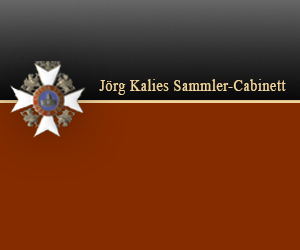

Scroll Top